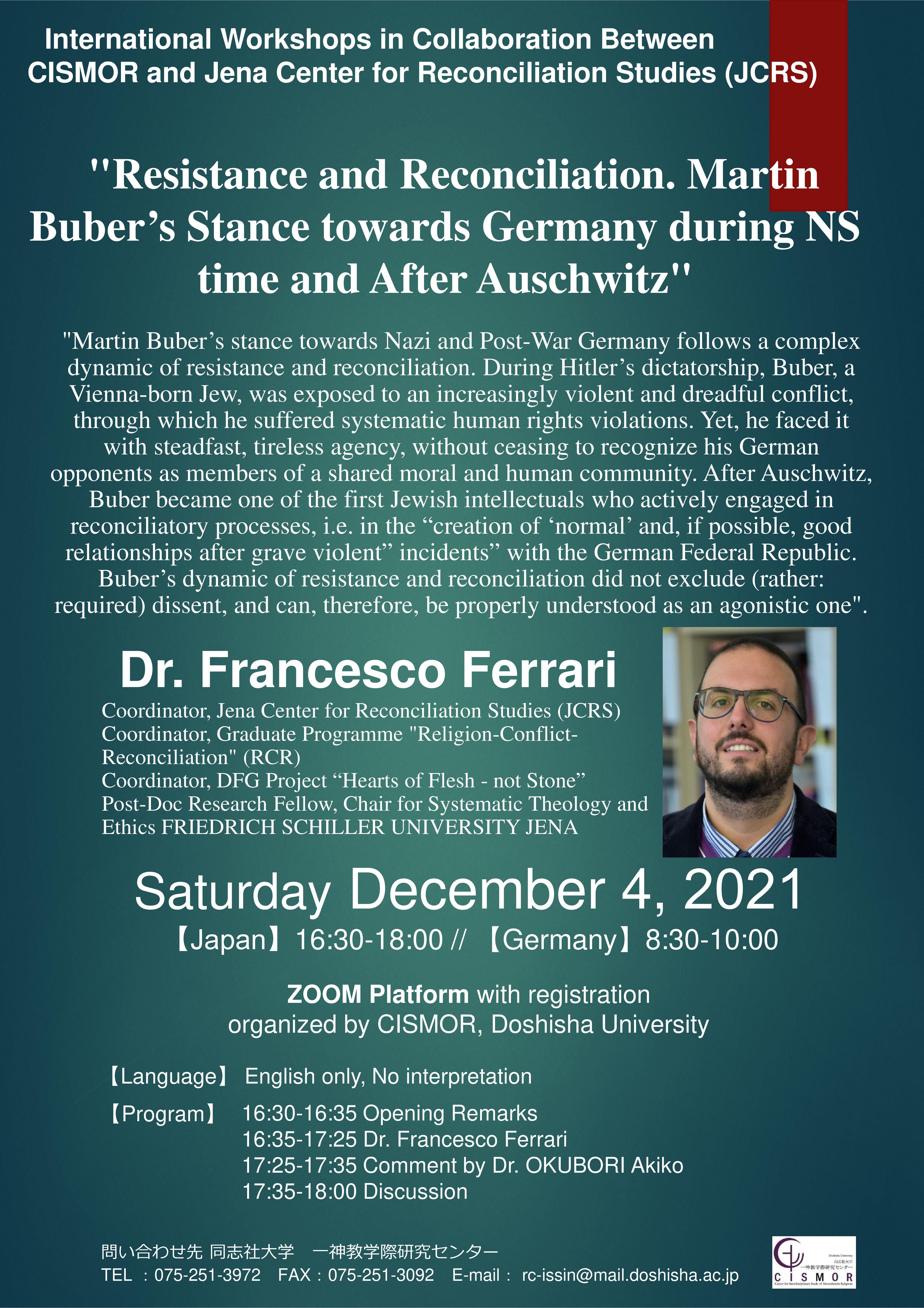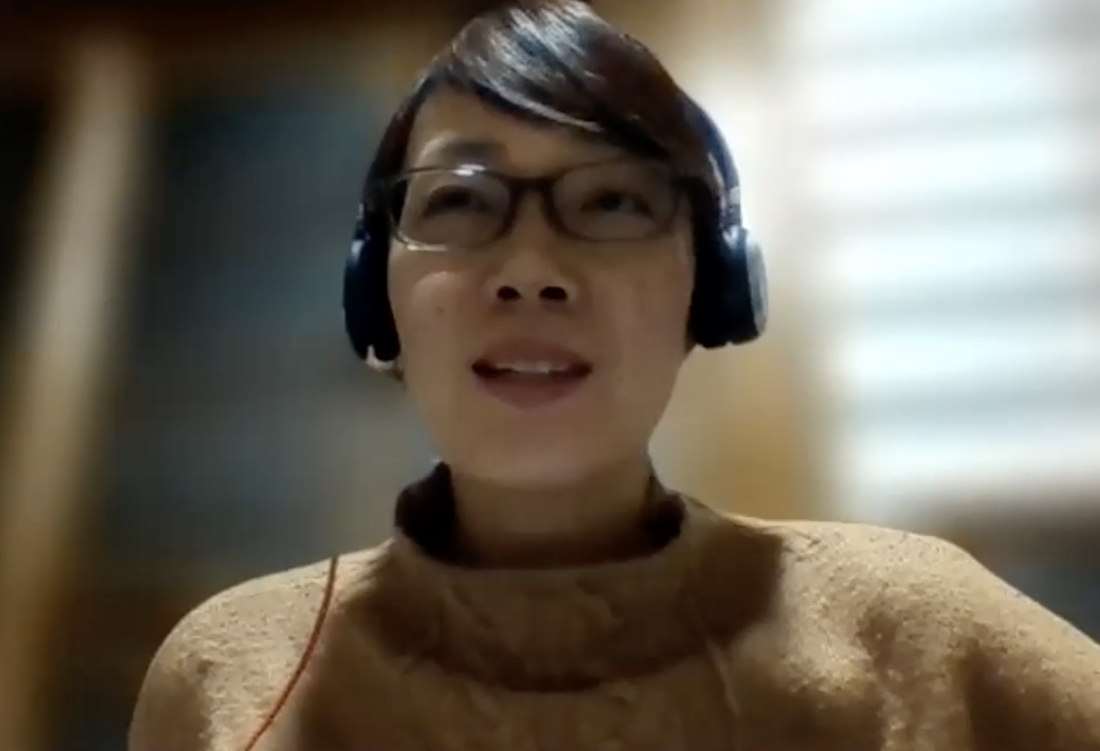> 研究プロジェクト >
“Resistance and Reconciliation. Martin Buber’s Stance towards Germany during NS time and After Auschwitz”
研究プロジェクト
International Workshops in Collaboration Between CISMOR and Jena Center for Reconciliation Studies (JCRS)
“Resistance and Reconciliation. Martin Buber’s Stance towards Germany during NS time and After Auschwitz”
| 日時: |
2021年12月04日(土)16:30-18:00 |
|---|---|
| 場所: | Online (Zoom Platform) |
| 発表者: |
|
| コメンテーター: |
|
| 要旨: | |
|
"Martin Buber’s stance towards Nazi and Post-War Germany follows a complex dynamic of resistance and reconciliation. During Hitler’s dictatorship, Buber, a Vienna-born Jew, was exposed to an increasingly violent and dreadful conflict, through which he suffered systematic human rights violations. Yet, he faced it with steadfast, tireless agency, without ceasing to recognize his German opponents as members of a shared moral and human community. After Auschwitz, Buber became one of the first Jewish intellectuals who actively engaged in reconciliatory processes, i.e. in the “creation of ‘normal’ and, if possible, good relationships after grave violent” incidents” with the German Federal Republic. Buber’s dynamic of resistance and reconciliation did not exclude (rather: required) dissent, and can, therefore, be properly understood as an agonistic one". |
|


